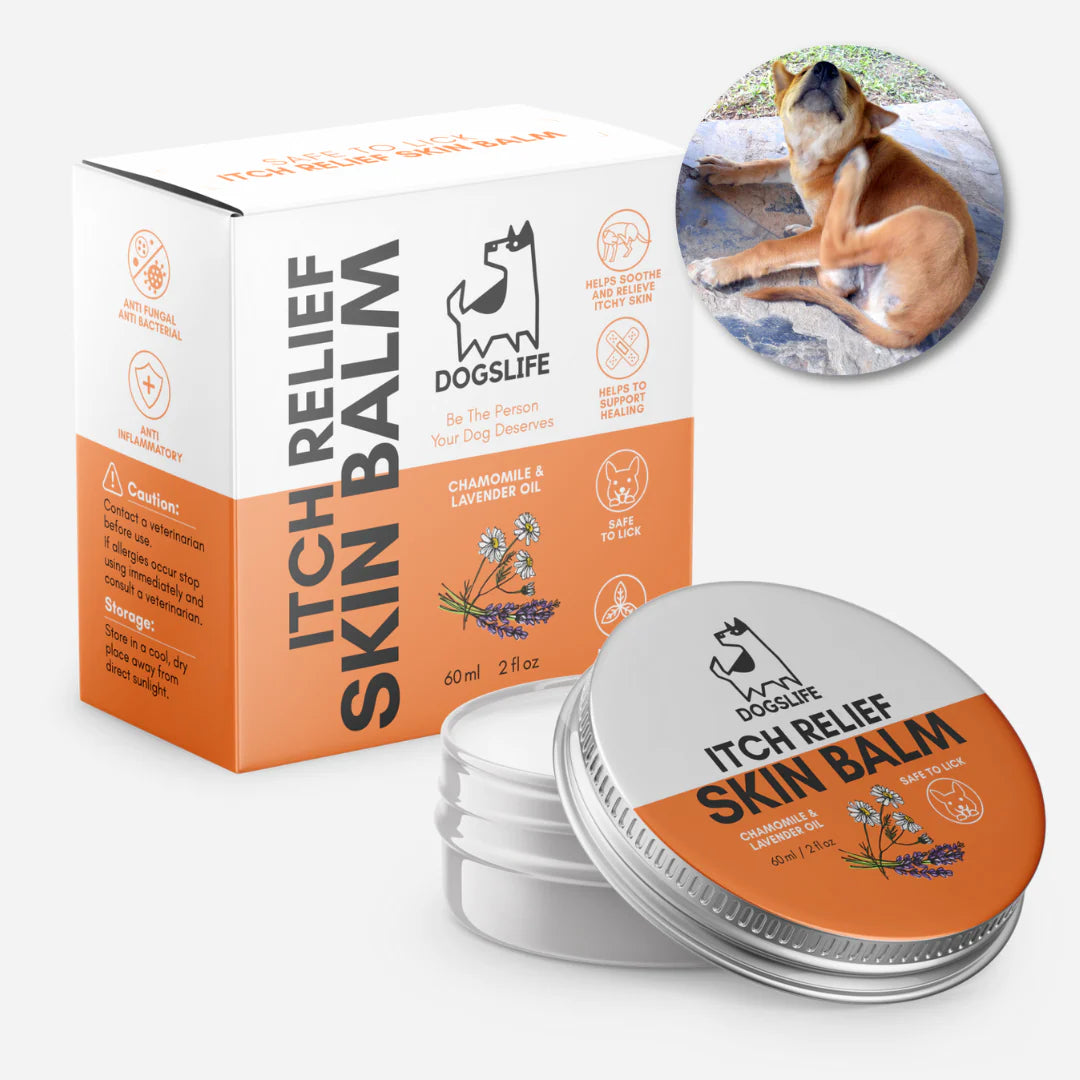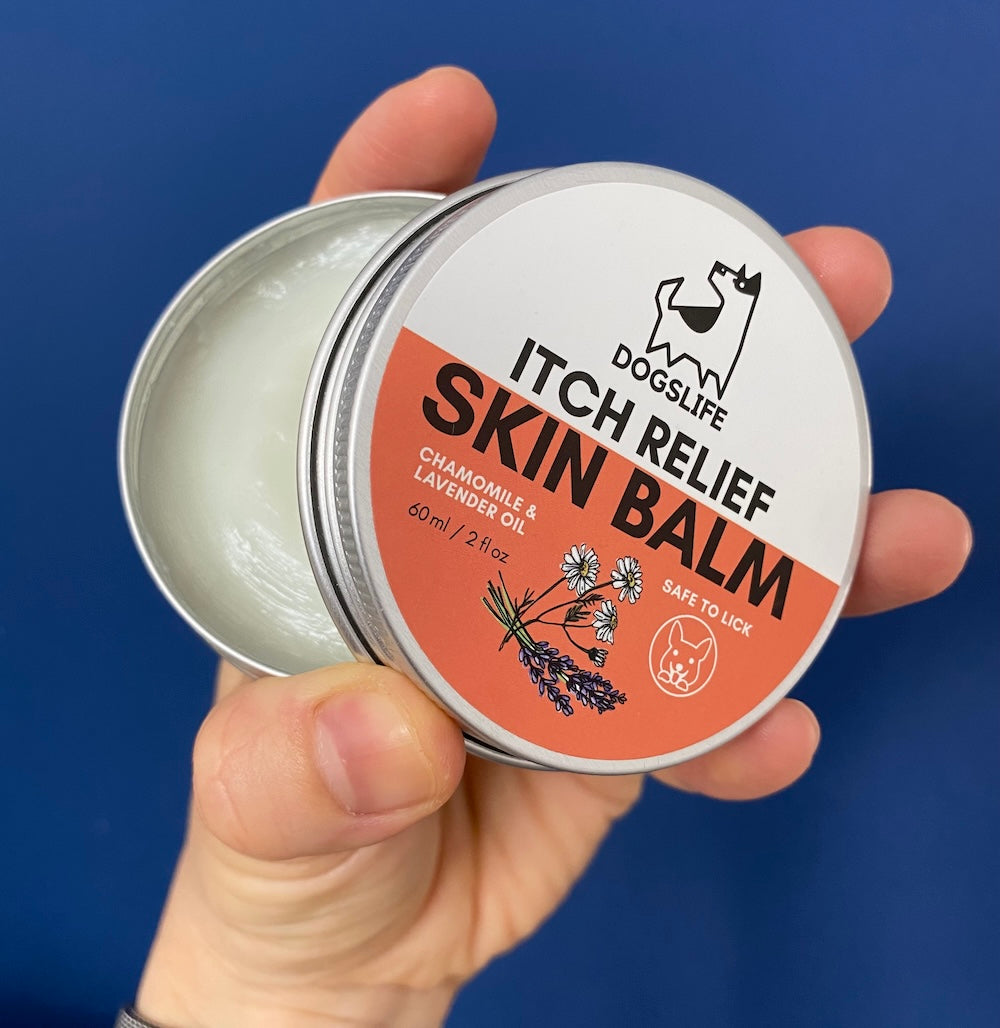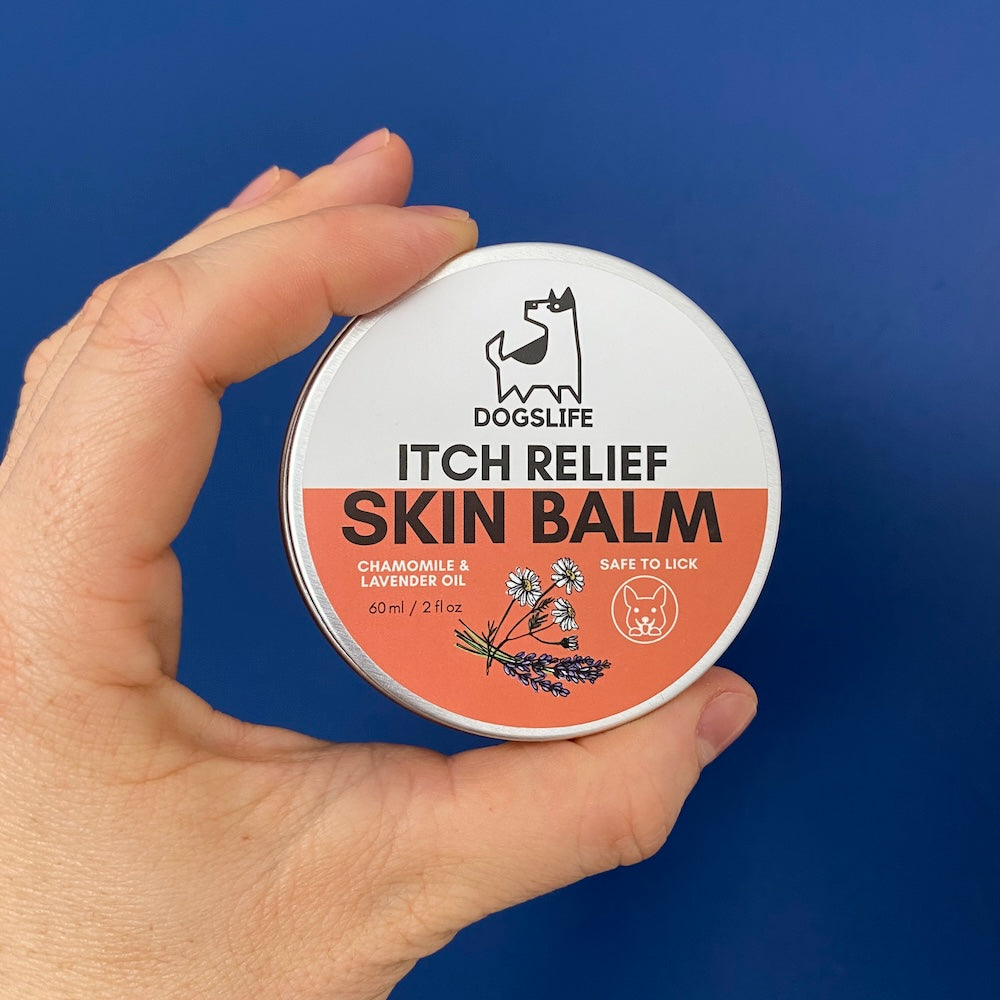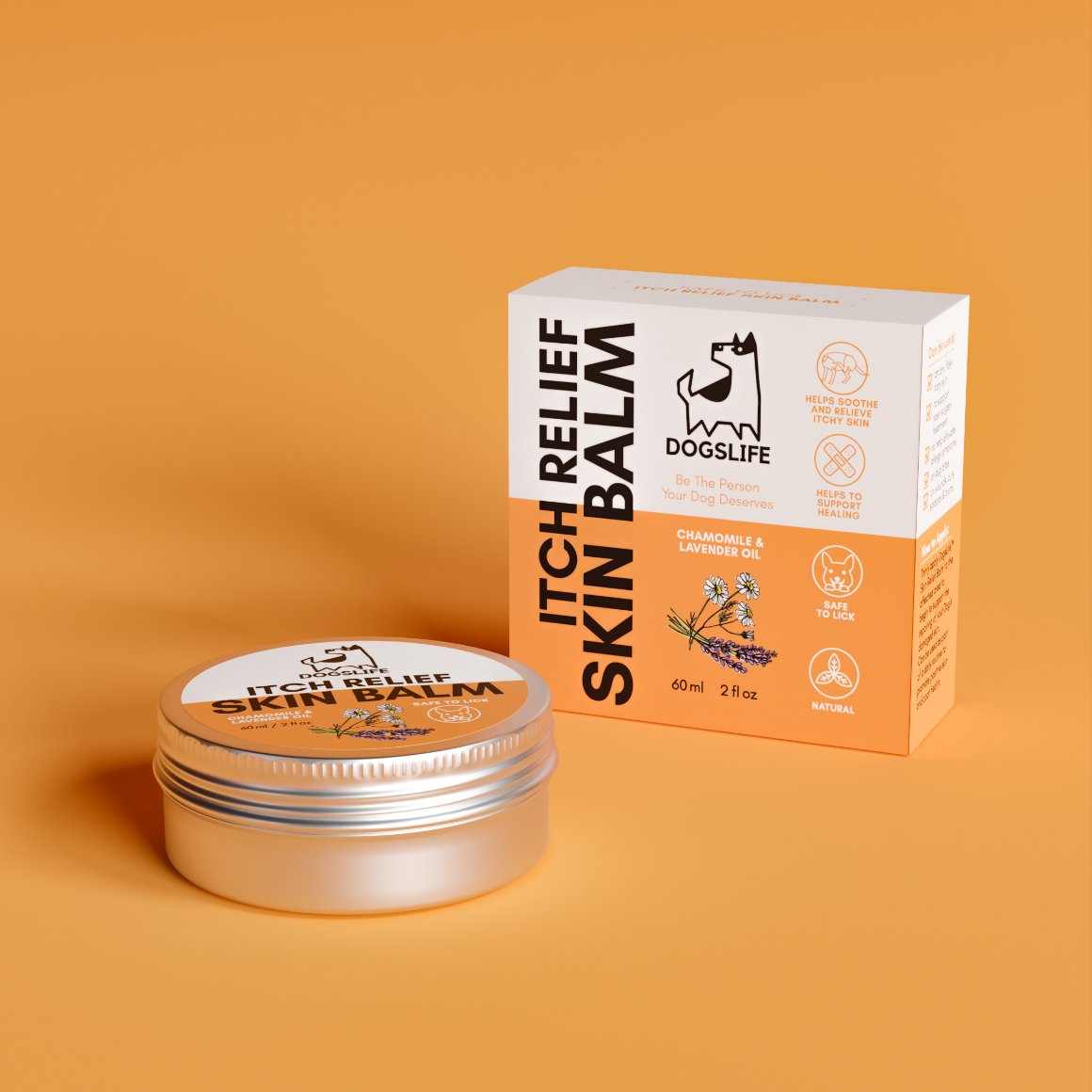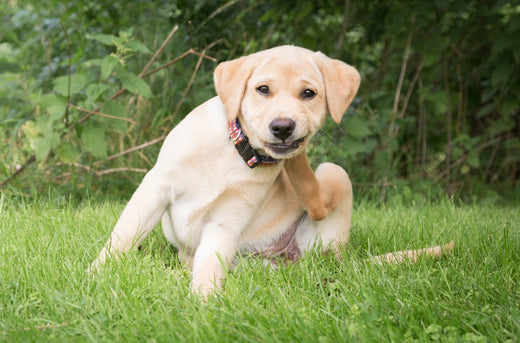
Why is my dog constantly scratching himself? Tips on how to relieve his itching.
[Updated]
When our dog scratches itself, we as owners are nervous about it. Fleas? No. Rash? No. It's quiet for a while and then it starts again. It scratches itself with its paw, or on the contrary, it bites its paws intensely. Does this sound familiar to you? Let's take a look at a few reasons why this might be the case and, most importantly, how we can relieve the itching in our dog.
The possible causes of scratching also vary slightly depending on the season during which it occurs. In winter, dogs are affected by cold, frost, humidity and chemicals on the road. They may then bite their paws in an attempt to clean them, but it is better if we as owners help them and clean their paws with a simple routine. Leave-in shampoo and eco-friendly wipes will be good helpers in this. Let's try to dry the paws as much as possible , even with a hairdryer. The moist environment of the paws in sensitive individuals leads to the formation of yeast infections, and it will be harder to get rid of them.
In the spring and summer, dust, pollen and parasites come into play, so you will bathe more often and perhaps use a vinegar water rinse. A drop of lavender oil on the earlobes and the base of the tail also works great for naturally repelling pesky insects and parasites.
3 other possible reasons why your dog keeps scratching himself
1. Internal discomfort
Sometimes (and nowadays, unfortunately, this is the most common reason) itchy skin comes from inside the body , as a manifestation of an allergy (to food, or a certain component of the diet, to the external environment (pollen, mites), as a reaction to chemical agents (vaccinations, medications, deworming and flea tablets, pipettes, collars). If there is a cause of this nature, finding it is more complicated and takes longer . In any case, our dogs are exposed to an enormous amount of artificial or chemical substances and it is highly advisable to reduce this amount if we want our canine majesties to be healthy and comfortable with us for as long as possible.
What can we do to help the dog:
- Choose food made from quality ingredients, ideally from a single source of easily digestible protein (chicken/turkey/fish), ideally flour-free, gently processed, and containing omega 3 fatty acids.
- Wash your dog's skin more often to remove dust and pollen with a caring shampoo , and use a caring cream or conditioner for additional skin nourishment.
- Limit the chemicals that enter your dog's body and replace them with natural ones. A holistic approach to your dog's health will pay off, even if you probably won't see the results right away.
2. Localized irritation
If your dog is chewing and licking his paws , check for dry and cracked paw pads . Dog paws are constantly exposed to cold and salt in the winter months, and dust, pollen and hot surfaces in the summer. You can relieve your dog with a natural paw balm , which, thanks to its unique blend of natural oils, beeswax, lavender and coconut oil, is very healing (I use it on my own cracked skin when necessary) and is safe even if your dog licks it.
If the biting and licking of the paws persists, the problem is likely to come from within (see point 1) and will not go away until you resolve the cause inside the body.
3. Sensitive skin
Some breeds are more sensitive to skin overall. If your dog doesn't groom himself regularly or intensely, but you still see that he feels uncomfortable and tends to scratch, or if you know that external factors such as dust and pollen irritate him, you can help him by applying a spray to relieve itchy skin .
Last but not least, it is necessary to mention the possible psychological aspect , when scratching and biting are a manifestation of irritation and anxiety. In such a case, focus more on training and communication with your dog, on his sufficient exercise , enough of your attention towards him and psychological well-being, which you can support with a calming spray.
Be careful not to scratch the eyes, ears and nose!
Pay attention if your dog is intensely rubbing his ears, eyes, or nose.
If the dog scratches its ears and perhaps shakes its head, there is a problem in the ears: either inflammation or, in the worst case, a foreign object (especially grass blades in the summer - this belongs exclusively to the veterinarian).
If your dog is rubbing his eyes , give him eye care by rinsing them with eye drops. If he is rubbing his eyes and they are also watering a lot, it is likely a sign of an allergy.
If your dog is scratching its nose a lot, it may be reacting to the external environment (dust, pollen), which you can relieve by gently cleaning its nose with a damp towel, for example. However, it may also have a problem inside its mouth, such as a toothache, abscess, or gingivitis, which only a veterinary dentist can help you confirm or deny.
In conclusion
When your dog scratches and bites itself, it can be mentally demanding for you - you want to know the cause and quickly relieve the dog. Often, you are the first to go to the vet and leave equipped with "derma granules," chlorhexidine shampoo, or anti-parasite tablets, all of which can make the problem worse. In veterinary medicine, the owner knows his dog best. It is up to you to critically assess the urgency of the problem in the context of your overall life and functioning. Did the problem arise suddenly, is it intense, does the dog have other signs of discomfort? Or is it a rather protracted, long-term problem, is the dog otherwise fine?
If you see that the problem is long-term , try to limit the chemicals that go into your dog's body as much as possible and replace them with natural methods and do not expect results immediately. Your dog should feel better within 2-4 weeks. If the problem persists, consider adjusting the diet . Ultra-processed extruded granules can be an unpleasant burden for the dog's body and, with their composition, feed, for example, yeast, which can cause great mischief on the skin, paws and ears. Therefore, try to switch to fresh food, clean quality meat or freeze-dried meat , at least for a while, which retains the maximum amount of nutrients and is as easy to administer for us owners as granules.
🔔
Do you enjoy my writing? Join Woofsletter (⤵️) and follow me on Instagram so you don't miss anything and we can share experiences.


